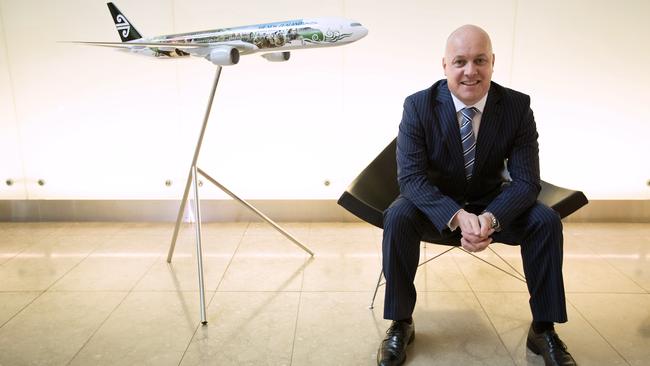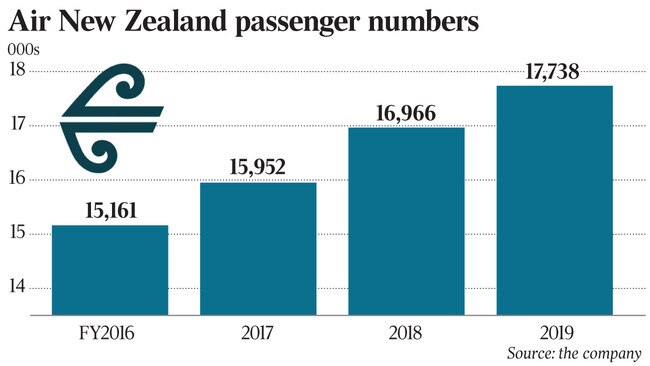Air NZ high-flyer Christopher Luxon weighs up political career
In one of his final interviews before leaving Air NZ, Christopher Luxon rejects the claim he’s getting out as the going gets tough.

As he prepares to hand in his security pass after seven years in charge of Air New Zealand, Christopher Luxon has opened up on the aviation industry, the split with Virgin Australia and his political ambitions.
In one of his final interviews before leaving the airline next Wednesday, Luxon has rejected the suggestion he’s getting out as the going gets tough following a 31 per cent slump in profits.
The decline was the first since he took over the reins in 2012, and one Luxon attributes to the global economic slowdown.
“The previous five years we’ve had international visitors growing at 8 per cent each and every year. At the moment it’s growing at 2 per cent,” says Luxon.
“What we’ve been very adamant about at Air New Zealand is we will make adjustments in the year and face up to those realities because typically airlines do not do that very well.”
He is not backward in criticising the economic management of the industry he joined as a newcomer after heading up consumer products giant Unilever in Canada. Luxon says it was quickly apparent his business background was an advantage in an industry where innovation was almost a dirty word.

“I found aviation was incredibly calcified in the sense that everybody did the expected thing within the industry,” he says. “I often felt I could swap airline CEOs from different airlines around the world and they would keep doing exactly the same thing that each of them did.”
He names Australian counterparts Alan Joyce and Paul Scurrah as among the airline CEOs he most admires but not former Virgin Australia boss John Borghetti.
When Air New Zealand still owned a 25 per cent stake in Virgin, Luxon famously sought to have Borghetti removed from the top job. When he did not get his way, Luxon quit the board and the shareholding and ultimately dumped the loss-making Virgin as a trans-Tasman partner in favour of Qantas.
“For us we were at a point where we couldn’t get alignment and we also wanted to see a different set of commercial results and performance,” says Luxon.
“Air New Zealand is one of the best performing airlines in the world and we felt that was an important thing — to get our capital out (of Virgin) and do other things with that money.”
Despite Scurrah having held the job of Virgin Australia CEO for just six months, Luxon says he’s very encouraged by what he’s seen from the former DP World boss.
“One of the first jobs of any CEO is you have to face up to reality; you may wish it to be different, but you have to walk towards that ugliness and the commercial challenges you might have,” says Luxon.
“They might be legacy issues that have built up for a long time but you have to confront them and (Scurrah) has been very transparent in the press around the challenges he’s got and he’s on the right path.”
Luxon’s own future is less clear at this point with “home projects, a coastguard course and learning a Maori language” among his immediate priorities. He maintains a keen interest in politics, which has been fuelled by his role as chair of Prime Minister Jacinda Ardern’s business advisory council.
“I’ll give it some serious thought,” says Luxon of running for government.
“New Zealand is a pretty special place. We have a lot of civility in our politics, we have a good interpretation of our past, it’s a highly collaborative place and we can be a great petri dish for the world.”
Not that he believes a political career is needed to take a stand on social issues, as Australian Liberal MP Ben Morton would prefer.
“That’s total rubbish. The reality is business leaders are very well trusted relative to political leaders around the world at the moment,” he says.
“Politicians take shorter-term views than business leaders who are trying to think about these in long-term ways.”




To join the conversation, please log in. Don't have an account? Register
Join the conversation, you are commenting as Logout